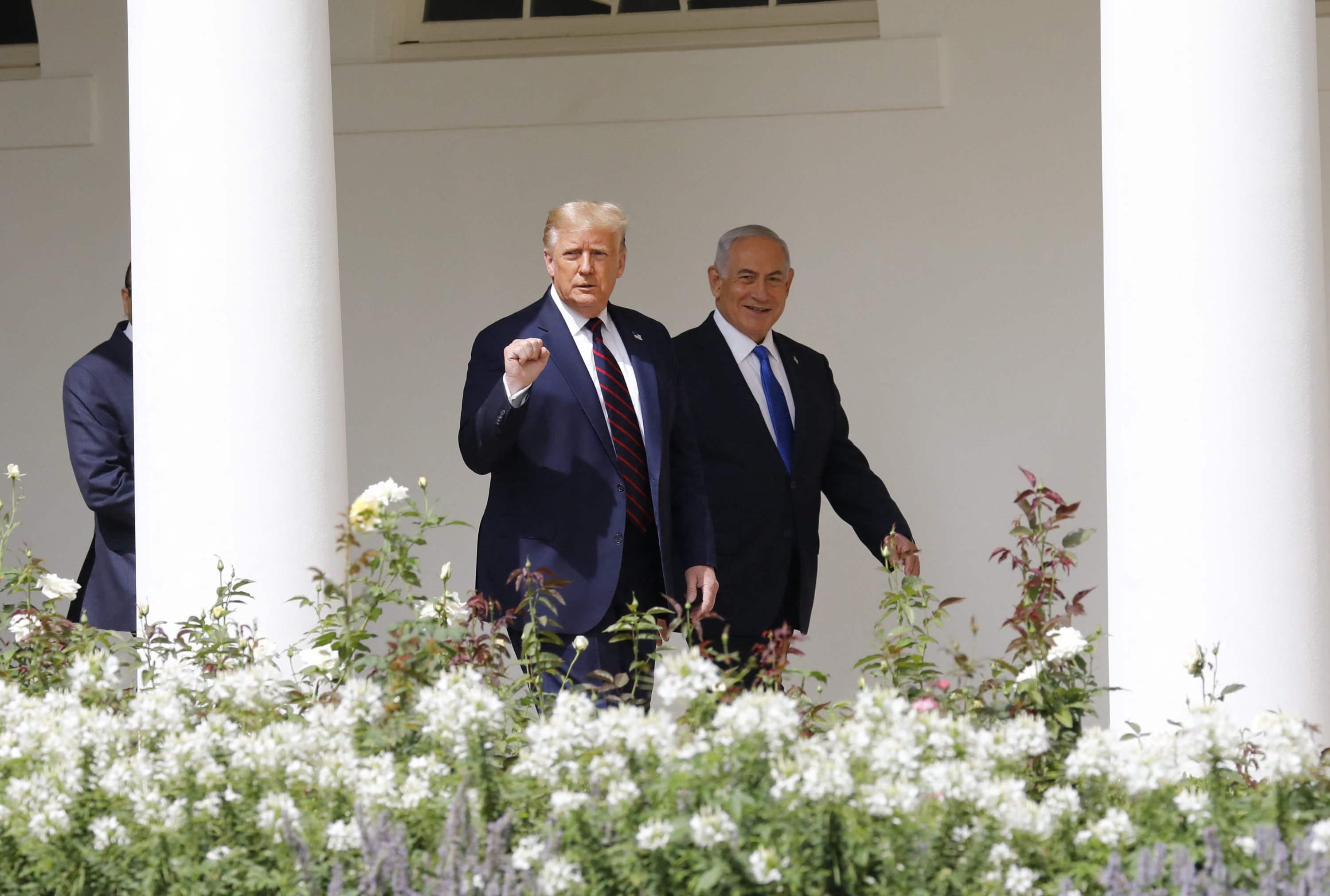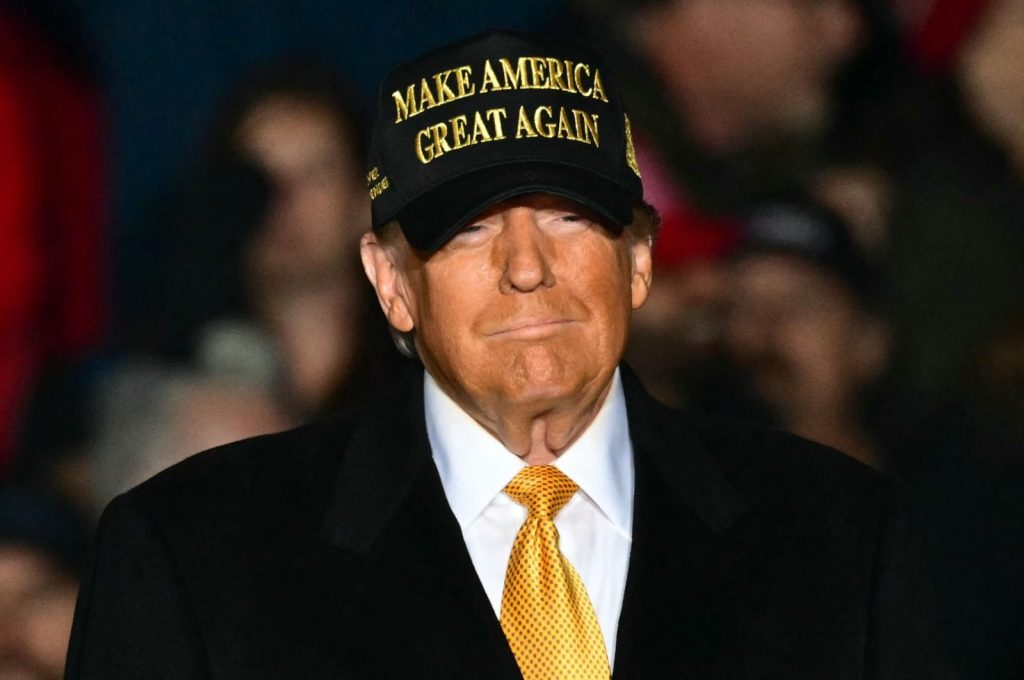As speculation continues about U.S. President-elect Donald Trump’s attitude to the Middle East in his second term, the region’s geopolitical landscape is undergoing significant recalibration. Key regional players are bracing for the potential shifts in U.S. foreign policy, as Trump’s second term is poised to revive contentious debates surrounding critical issues, from Saudi Arabia’s play for regional supremacy to Iran’s nuclear program.
The question remains: What will the Middle East look like in the second term of Trump’s presidency?
At the heart of Trump’s Middle Eastern strategy lies the prospect of forging a grand bargain with Saudi Arabia. This deal could involve U.S. security guarantees, advanced nuclear cooperation and, perhaps most critically, the normalization of relations between Saudi Arabia and Israel. Although the Biden administration laid essential groundwork for such agreements with the Abraham Accords, Trump’s team is expected to adopt a stronger stance. However, Saudi leaders have made it clear that any normalization with Israel hinges on tangible progress toward Palestinian statehood.
Abraham Accords
The Abraham Accords marked a transformative moment in Middle Eastern diplomacy, paving the way for unprecedented normalization agreements between Israel and several Arab nations. These accords, which were initiated under Trump’s leadership, symbolized a bold reimagining of regional cooperation, challenging decades of entrenched enmity. As Trump prepares to retake the Oval Office, a hot question is swirling: Can his second term extend the accord?

Critics argue that the Biden administration’s handling of Middle Eastern policy starkly contrasted with Trump’s strategy, which maximized the momentum generated by the Abraham Accords.
If Trump’s second term aims to re-energize the Abraham Accords, it could pursue deeper integration initiatives, including expanded trade agreements and cultural exchanges between Israel and Arab nations. Nevertheless, the geopolitical environment has dramatically shifted, particularly in light of the Oct. 7 attack on Israel and the resulting regional strife. Arab states may now find themselves torn between the allure of alignment with Israel and mounting domestic pressures advocating for Palestinian solidarity.
Trump’s transactional approach to diplomacy and his knack for establishing unconventional alliances might uncover fresh avenues for expanding the accords. However, with Saudi Arabia’s leadership signaling that normalization is contingent upon significant concessions for the Palestinians, balancing these demands while addressing the escalating conflict with Iran will necessitate skillful negotiation — a capability Trump has long touted.
Israel, Gaza policy
Trump’s unwavering support for Israel has served as a cornerstone of his foreign policy. However, his second term may introduce new layers of nuance. Although many figures in his administration remain committed to Israel’s security, skepticism surrounds the notion of unconditional backing for Israel’s Prime Minister Benjamin Netanyahu’s policies, especially in light of recent conflicts. Trump’s expressed skepticism of prolonged military engagements may compel him to advocate for resolutions that reflect his broader reluctance toward “forever wars.”
In his second term, Trump’s approach to the Gaza conflict is expected to heavily align with his prior pro-Israel policies, which prioritized Israeli security and territorial claims over Palestinian aspirations for sovereignty. Trump is likely to double down on his “America’s Negotiator in Chief” persona by advocating for Israel’s interests while attempting to secure the release of hostages held by Hamas.
Trump’s administration would likely reinstate strict sanctions on Iran, framing it as a sponsor of Hamas and other groups, while signaling unwavering support for Israeli military operations in Gaza. However, this could exacerbate the humanitarian crisis in the region, as Trump’s policies historically downplayed Palestinian national independence and sovereignty. By supporting settlements, annexations and security control by Israel, Trump would aim to pressure Arab states to prioritize counterterrorism and normalization with Israel over Palestinian rights.
Inheriting the Gaza war and hostages crisis, Trump’s strategy would likely reflect his transactional style — using American leverage to extract concessions from Iran and Hamas without altering Israel’s position on Gaza. This approach, while bolstering Israel’s security, risks deepening divisions in the region and diminishing prospects for sustainable peace.
Iran’s nuclear program
Iran remains a crucial challenge for the U.S., with the nation inching further toward nuclear capability. It is anticipated that Trump’s administration will continue to adopt a “maximum pressure” strategy – a defining feature of his first term. His appointees, known for their hawkish stance on Iran, suggest that any engagement with Tehran will prioritize imposing strict constraints on its nuclear endeavors. Critics, however, question whether Trump’s aggressive rhetoric will effectively deter Iran’s program or the tensions will escalate between the two sides one more time.
View on Lebanon
Lebanon stands as a critical focal point for Trump’s administration, straddling the divide between Israel and Hezbollah amid rising tensions in Gaza. With Hezbollah receiving support from Iran and maintaining a formidable presence in southern Lebanon, this area has devolved into a battleground for proxy conflicts that threaten to escalate into wider hostilities. Trump’s hawkish advisers are likely to champion stringent measures against Hezbollah, potentially urging increased military support for Israel and pressing the Lebanese government to regain control over its territory.

However, personal connections could influence Trump’s policy decisions. Lebanese American businessperson Massad Boulos, who is associated with Trump through family ties, may play a discreet yet significant role in shaping the administration’s approach. His efforts to broaden Trump’s appeal among Arab American constituents could push for a less confrontational stance, possibly facilitating dialogue with Lebanon’s Christian community. Whether Boulos’s influence can temper Trump’s characteristic hawkishness remains uncertain, yet Lebanon’s precarious situation will undoubtedly require the administration’s close attention.
The challenges within the Middle East now extend beyond regional borders. In the U.S., rising anti-Israel sentiment and increasing anti-Semitic incidents underscore the far-reaching implications of Middle Eastern conflicts. Trump’s administration may address these concerns by integrating domestic policies with international strategies aimed at combating antisemitism, potentially framing it as a national security issue.
The distinction between Trump’s and Biden’s foreign policy strategies concerning the Middle East highlights contrasting ideological foundations and priorities. The Trump administration favored a pro-Israel agenda, enacting policies like recognizing Jerusalem as Israel’s capital, relocating the U.S. embassy, and crafting a “Trump Peace Plan” that Palestinians largely rejected as unbalanced. In contrast, Biden’s administration has pursued a more traditional and nuanced approach, aiming to balance support for Israel with diplomatic efforts to re-engage Iran through the Joint Comprehensive Plan of Action (JCPOA).
Critics argue that the Biden team’s mixed signals weaken the U.S. position amid escalating tensions, particularly in light of drone attacks on U.S. interests and ongoing conflicts in Gaza. Trump’s foreign policy emphasized decisive, unilateral actions framed as “peace through strength,” seeking to reshape regional dynamics through initiatives like the Abraham Accords. By contrast, Biden’s approach reflects cautious diplomacy marked by conflict de-escalation efforts and coalition building, which has drawn skepticism for a perceived lack of clarity and strength.
Path forward
As Gulf leaders express optimism at the prospect of Trump’s return – viewing him as a predictable and resolute ally – the stakes are undeniably high. From addressing urgent humanitarian crises in Gaza and Lebanon to countering Iran’s regional influence, Trump’s second term will test his capacity to translate bold proclamations into concrete outcomes. While the Middle East may welcome the familiarity of Trump’s leadership, its complexities necessitate a recalibrated strategy that harmonizes traditional alliances with pragmatic solutions.
With a cadre of hawkish advisers and a transactional approach to governance, Trump’s administration stands at a crossroads – capable of either reinforcing U.S. influence in the region or exacerbating existing divides. One thing is certain: Trump’s second term will likely focus on de-escalating tensions in the Middle East by emphasizing his role in shaping new conditions and spotlighting the perceived failures of Biden’s policies.


